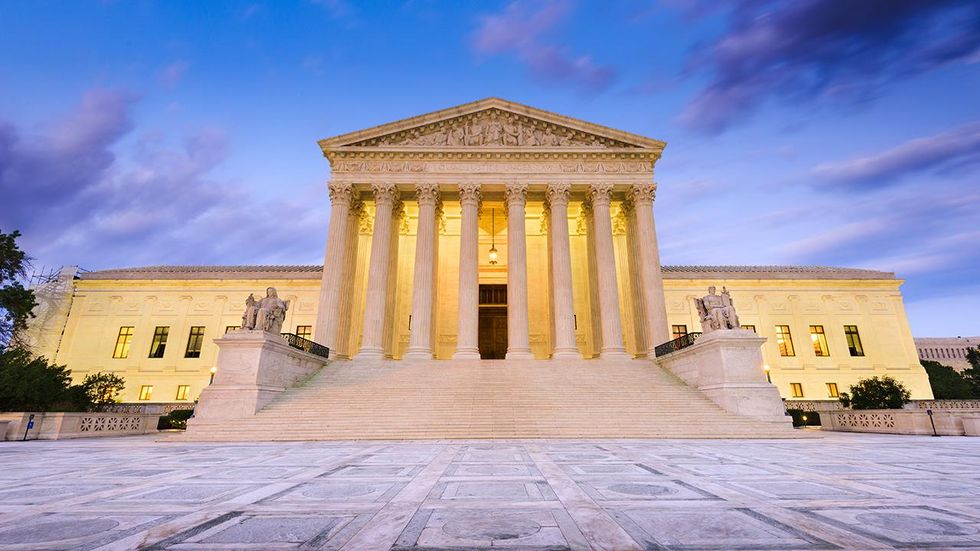
The U.S. Supreme Court will hear a case Tuesday on whether the state of California can force anti-abortion centers to provide information about abortion and other services. (Sean Pavone Photo/Getty Images)

A state of California law forces licensed anti-abortion centers to tell clients that other services – including abortions – are available elsewhere at little to no cost. The law also requires unlicensed facilities to post signs disclosing that they are not approved by the state.
On Tuesday, the Supreme Court will hear whether the law violates the First Amendment, The Associated Press reported. The case will not deal with whether a woman has the right to an abortion. The outcome could, however, impact practices in other states. In some states, for example, doctors are required to explain a sonogram and fetus development to women considering an abortion.
Abortion-rights groups pushed for the law, because they were “worried that vulnerable, uninsured women,” were going to pro-life centers expecting to receive “comprehensive” care, according to the report.
Christine Vautone, president of the clinic, Informed Choices, said that being forced to place the signs in her licensed center’s waiting room requires her to become a “billboard for the abortion industry.”
California’s law is being challenged by the National Institute of Family and Life Advocates, which works with 1,500 pregnancy centers nationwide and 140 in California, including Informed Choices, according to the report.
The Gilroy-based Informed Choices center advertises “free pregnancy services” and already has signs stating all options will be discussed with pregnant women, AP reported. However, Informed Choices steers women away from choosing abortion.
Anne O’Connor, NIFLA’s vice president of legal affairs, said the centers exist to promote childbirth.
“The crux of this issue is, can the government force anybody ... to advertise for a message that they’re morally opposed to. We feel strongly that it violates our First Amendment rights,” said O’Connor. She made the statement to AP in the Washington offices of Alliance Defending Freedom, the Christian law firm representing NIFLA at the Supreme Court.
Amy Everitt, the California director of NARAL Pro-Choice America, calls them “fake women’s health centers” because they do not tell women about other options.
Also, the state of California argues that requiring pro-life centers to provide information about other options is not a violation of free speech.
The Trump administration has agreed with the NIFLA that the law violates the rights of licensed centers, according to the report. But it has no objections for the requirement for unlicensed centers.
There are an estimated 2,500 to more than 4,000 crisis pregnancy centers in the U.S. compared to fewer than 1,500 abortion centers, women’s right groups stated in a Supreme Court filing.